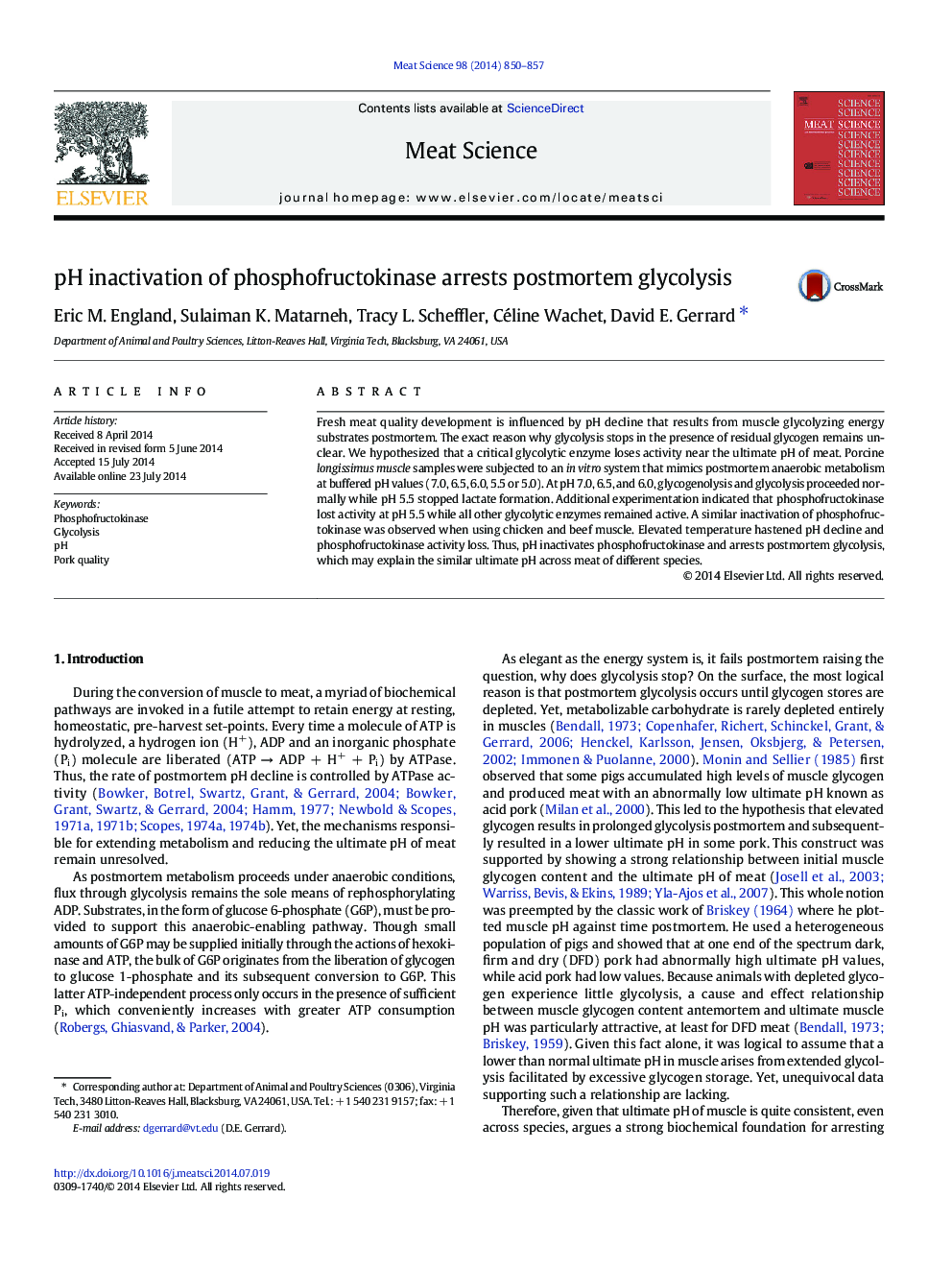| کد مقاله | کد نشریه | سال انتشار | مقاله انگلیسی | نسخه تمام متن |
|---|---|---|---|---|
| 2450022 | 1109614 | 2014 | 8 صفحه PDF | دانلود رایگان |

• We reestablish the Scopes buffer system as a tool for postmortem metabolism research.
• Phosphofructokinase (PFK) is pH inactivated postmortem.
• PFK partially explains the consistency in ultimate pH in meat of different species.
• Rapid glycolysis allows more substrate to pass PFK which may lower ultimate pH.
• An updated model of the factors controlling postmortem metabolism is proposed.
Fresh meat quality development is influenced by pH decline that results from muscle glycolyzing energy substrates postmortem. The exact reason why glycolysis stops in the presence of residual glycogen remains unclear. We hypothesized that a critical glycolytic enzyme loses activity near the ultimate pH of meat. Porcine longissimus muscle samples were subjected to an in vitro system that mimics postmortem anaerobic metabolism at buffered pH values (7.0, 6.5, 6.0, 5.5 or 5.0). At pH 7.0, 6.5, and 6.0, glycogenolysis and glycolysis proceeded normally while pH 5.5 stopped lactate formation. Additional experimentation indicated that phosphofructokinase lost activity at pH 5.5 while all other glycolytic enzymes remained active. A similar inactivation of phosphofructokinase was observed when using chicken and beef muscle. Elevated temperature hastened pH decline and phosphofructokinase activity loss. Thus, pH inactivates phosphofructokinase and arrests postmortem glycolysis, which may explain the similar ultimate pH across meat of different species.
Journal: Meat Science - Volume 98, Issue 4, December 2014, Pages 850–857